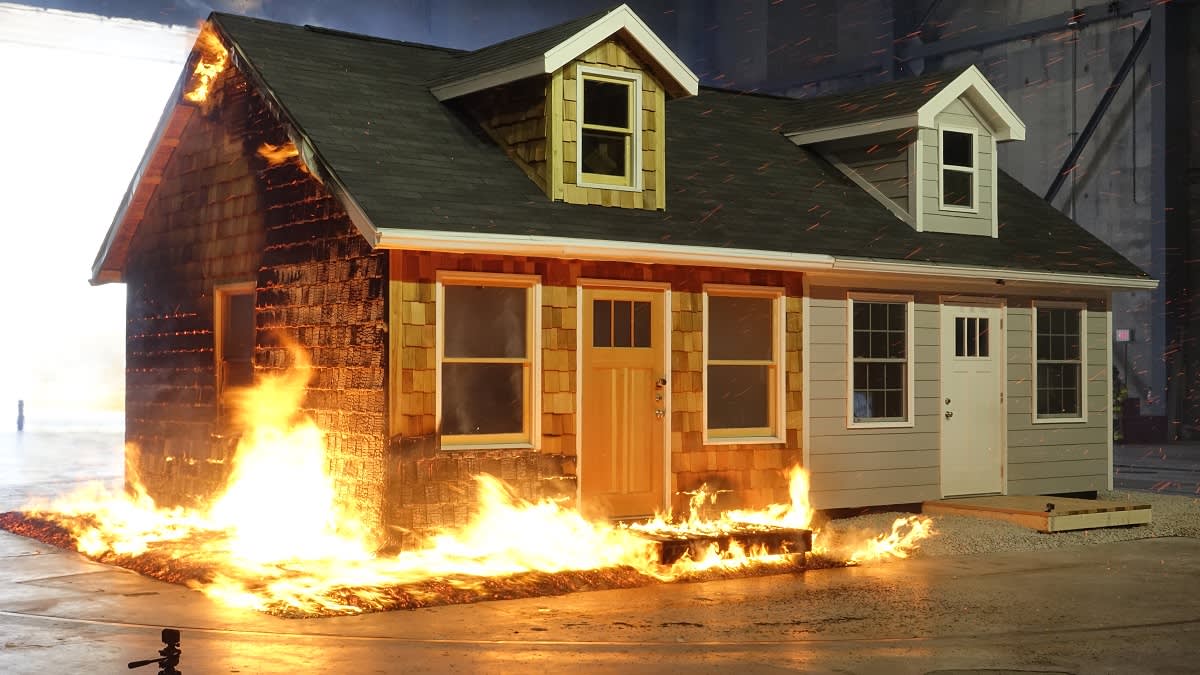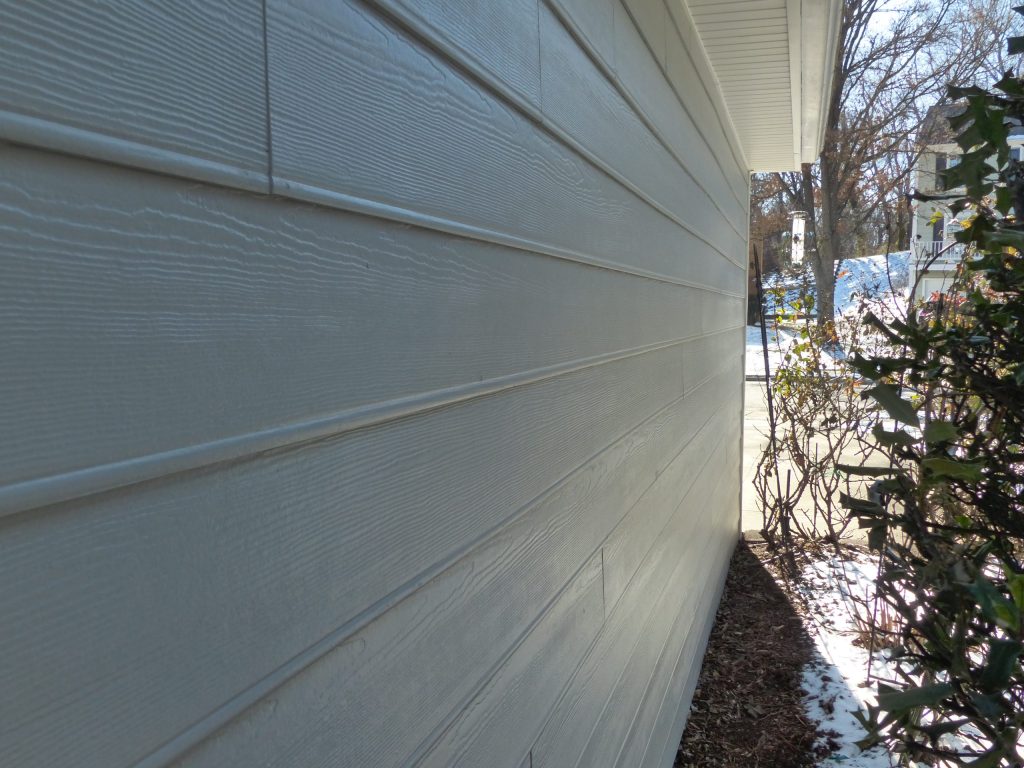Published on: May 27, 2025

Fire-resistant siding materials reduce the risk of catastrophic home fires by providing greater protection for your home’s exterior. You have three main options for protecting your home’s exterior from fire: Fiber cement, brick or concrete.
Fiber cement is durable and can help you achieve a variety of aesthetics. Use it for a fire-resistant wood alternative that requires less painting and provides a better barrier for insects.
Brick provides a luxurious appearance on a home with outstanding fire resistance. While it’s very expensive to install on your home, it also has a long life of approximately 50-100 years, or even as long as the building is standing. Another benefit brick siding provides is that it is energy efficient.
Much like brick, concrete is an expensive siding medium. But once installed, it lasts for many decades. If well maintained, concrete siding can last more than 60 years.
Fire-resistant siding is just one aspect of building a haven for you and your family. Here are some other ways to reduce the risk of fire to your home.
Placing materials that are highly flammable near your home can make the building more susceptible to fire. Any landscaping that is five feet or less from your home should be fire-resistant plants. Ideally, you should also use non-flammable landscaping materials, such as gravel instead of mulch.
As your landscaping gets farther from your home, you can adjust the type of vegetation there. Reduce the density between five to 30 feet from the home and go with highly moist plants
No matter how far they are from your home, try to keep trees and shrubs thinned to prevent them from becoming areas of your property where fire can spread rapidly.
Home tech has been improving at incredible rates. Now you can protect your home with the following systems that can prevent or put out a fire quickly.
Ember-resistant vents prevent flames from entering the home. Incorporating sprinkler systems in the home can help put out flames before they spread and grow. Installing smart home monitoring systems can keep you aware of a problem long before it becomes a massive risk to your home. Real-time updates alert you to even the most minor concerns.
The sooner you are alerted to a fire, the sooner you can act to get to safety and alert emergency services to hopefully prevent too much damage. Install quality smoke detectors and check them every six months to make sure they are working and the batteries still have juice.
Cooking equipment is the leading cause of home fires, with 49% of home fires starting in the kitchen. Don’t become a statistic. Stay close by the kitchen throughout your cooking to protect your home and your family.
Chimneys and woodstove pipes can be areas where fires start. Cleaning them of debris and obstructions helps prevent home fires. You should also never leave a fire smoldering when you go to bed. Be sure the fire is fully out before calling it a night so you are always there to monitor the fire.
Another area of the home where fires start is in frayed wires. Monitor the status of all wires – especially appliance cords – and replace them if they appear worn. Never run cords under furniture or rugs where they could start a fire quickly if they spark.
When using a space heater in your home, make sure it is recognized by the Underwriters Laboratories (UL) or another recognized laboratory. Buy only space heaters with thermostat controls with automatic switch-offs for heaters that fall over.
Washington homes should be fire-resistant for a variety of reasons. These homes can face fires from many sources.
While California is the most common state in the U.S. for wildfires, Washington is also a common place for wildfires. In 2021, 674,000 acres of Washington were burned in wildfires in the state.
The more fire-resistant your home’s materials are, the more durable it will be to hold up against the severe weather in Washington. Fiber cement, concrete and brick siding are also durable against moisture, warping and cracking. This helps the siding hold up to extreme weather.
Because your siding materials are more durable, they will give firefighters more time to respond to your call if you face a fire at your home. That also gives you more time to get out of your home in case of a fire.
2FL Windows, Siding and Roofing is a James Hardie Elite Preferred contractor. If you’re evaluating the best fire-resistant material for your home that mixes affordability, low maintenance and longevity, James Hardie is a great option. Here’s a look at some of the benefits this siding provides.

Fiber cement siding is a mix of cement, cellulose fibers and sand. If you think about those materials, they are inherently non-combustible. These materials do not ignite or melt even when put under extreme heat.
Homes in the Pacific Northwest face unique weather challenges and extreme moisture. The siding is designed for Washington homes and will last many years on your home.
Fiber cement siding does require painting every 10-20 years, but it’s far less than wood requires. That’s infrequent maintenance compared to other materials and will reduce the load on you. Plus, you’ll enjoy great-looking siding for 60 years or more, making it one of the longest-lasting siding materials.
Fiber cement siding blends durability with curb appeal to provide an outstanding siding material no matter your goals. You can select the color of siding from a variety of shades or paint it yourself to get the exact shade you want.
If you want the ultimate in fire-resistant siding, 2FL Windows, Siding and Roofing is your resource and guide to choosing the best option based on your needs. A member of the team will meet with you in your home to guide you in finding good materials and the design you want for your home. Schedule your free estimate now to start your project.
Further Reading:

Read the latest articles about siding.
